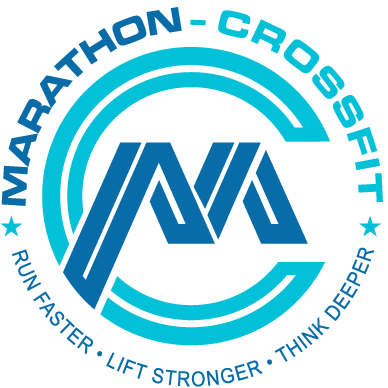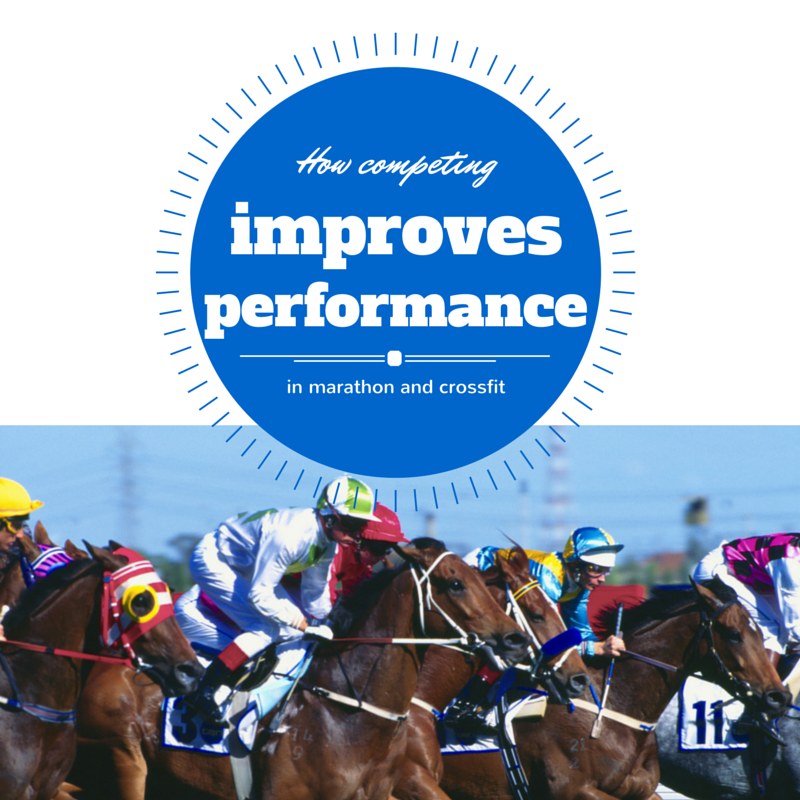How competing improves your marathon and crossfit performance
Competition is controversial and can impede and accelerate performance depending on how able you are to deal with pressure. Based on my own experience and the ideas from the articles "Coaches are key in making competition a positive or negative sport experience for athletes" and "Does competition boost performance" you will find some thoughts in this article whether to compete or not.
You can compete in many ways
Competition does not necessarily have to be you against someone else or one group vs another group. The definition of Martens from 1975 for a competition is "A situation where an individual's or team's performance is measured against a standard". The beauty of this is, that you can make your own standards, as long as you are not competing in an association or league which defines it. You can measure yourself against many performance indicators. Here lies the beauty of crossfit as there are many standards you can compare yourself against, where as running has its limitations in this regard.
You should compete for improving on metrics rather than humans
Every sport is about measuring yourself against a certain kind of metric. Be it goals scored, touchdowns thrown, miles run, weight lifted or height vaulted. I personally was most successful if I looked at all of the metrics involved in the particular exercise and increase on each of them. This technique will enable you as a coach or athlete to focus on abstracts rather than humans in competition and not make it personal. Once you decided you compete against another person / team rather with yourself and the scoreboard you made competition personal. For me this is the more likely way to get emotions into it and get offending towards others. A point to be mindful about. Of course it can have positive consequences for you if you manifest your need to compete in a rival, but i find that hard without attaching negative emotions to them in the long run, may they be ever so little (you can not be jealous of a number, but of a person...).
You should pick your standard wisely
There are two different aspects to picking the standard you are comparing yourself against. The first one being the score for a particular movement of choice (how high did I jump), the other which standards contributed to that score you look at (how high did I jump, how much did I accelerate before jumping, how far was I away from the pit before I took off etc.).
For the former you should compare yourself and strive towards scores which are slightly above your training performance in competition to improve over time. For me it worked to set a goal of 1 - 5% improvement on a certain score for each training session and 10%+ improvement from my best training result in competition. If you pick a goal that either under/over challenges you it will be demotivating due to being boring / too easy to achieve or completely out of reach.
With the standards you measure yourself on always be mindful that the ultimate result for your score is influenced by many substandards which contribute to the overall result. If you only look for the one number to optimize you might inhibit your long term performance. For my training I look at my performances on intervals, 5k races, 10k races and half marathons and not just at the marathon time cover that I have a good balance between the standards of pace and overall distance run.
You should find a community to compare your standards against
If you only compete against yourself against the standards you set you will not now if your results could be even better. A good peer group can be inspiring in as to what can be achieved at the highest levels and what people similar to you have achieved. This will help you to adjust and become even better at what you are currently doing, by finding new goals you would not have come up with yourself.
How competition impacts endurance athletes
There is research that proves that athletes get better results when competing in a group. At Arizona State University, subjects were able to lift 11 percent more weight when they conducted a max. weightlifting test in a competitive group situation than when they were asked to perform the same test without company. A similar test at the University of California Berkeley in 1968 (I admit that is a while ago) putting people on stationery bikes resulted in 20% spent longer on average when poeple were in a group situation.
One of the most impressive instances of competition and how it impacts performance was the so called "Iron War" in 1989 at the Ironman World Championship. Dave Scott and Mark Allen were neck to neck for 140.6 miles until Allen put Scott behind him on the last 1.7 miles of the triathlon to win the race. This race improved the world record from Scott from the year before by 20 minutes.
I personally ran all of my personal bests at races competing with others. To be fair here we have to compare distances which I also run in training. As I do not go for a full marathon in training you can only look at my results for the 5 mile, 10k, 10 mile and half marathon. Without exception my PRs were scored in races.
For crossfit and weightlifting I do not have a benchmark yet, as I did not compete in any official events. Still endurance is a vital part of crossfit performance and should not be overlooked.
Further reading
- 12 practical tips for fitness coaches to be healthier
- As a man thinketh for fitness coaches
- Best apps for fitness coaches
- Choose yourself for fitness coaches
- Deep work for fitness coaches
- Finish for fitness coaches
- Grit for fitness coaches
- How fitness coaches get mindfulness easily
- How fitness coaches get unlimited power for their clients
- Mastery for fitness coaches
- Rework for fitness coaches
- The ONE Thing for fitness coaches
- The power of now for fitness coaches
- The power of positive thinking for fitness coaches
- The power of thinking big for fitness coaches


